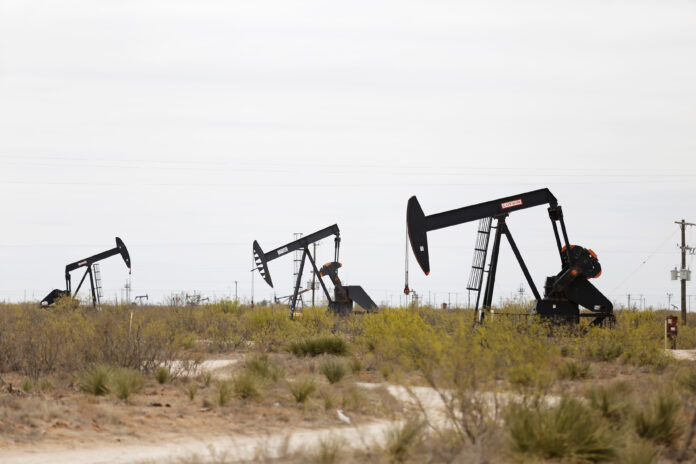Proration, or limiting oil and gas production to help control prices, is controversial in the energy industry because many producers cite free market principles in opposing it, but a significant number backed it when the prices tanked in the spring last year.
Things got bleak enough that the Permian Basin Petroleum Association put the idea to a vote of its 500 members before the Texas Railroad Commission rejected it 2-1.
The PBPA, Midland oilman Wes Perry, ConocoPhillips spokesman Dennis Nuss and the American Petroleum Institute in Washington say the notion is on the back burner now that prices have rebounded.
But they say the possibility remains that statewide proration will one day be reconsidered as worldwide markets remain vulnerable to the whims of OPEC and OPEC-Plus, the ups and downs of supply and demand and the menace of COVID-19 and its variants.
Asked why OPEC and OPEC-Plus are periodically called on to reduce their pumping when American producers are unwilling to do so, PBPA Executive Vice President Stephen Robertson said it’s a difference in purposes. “We’re not like Saudi Arabia or Russia, which are all about the dollar,” Robertson said.
“Here, it’s all about competition. We produce a cleaner barrel of oil and we want to improve the environmental impact of our product. We had members who were in favor of proration and others who favored market forces determining what happened.”
Robertson said the PBPA then reported to the oil- and natural gas-regulating Railroad Commission in March 2020 that its divided membership dictated a neutral position. He explained that the RRC has always ordered some limited proration and does now in various fields to prevent waste and adjust the correlative rights and opportunities of royalty owners.
Former Railroad Commissioner Ryan Sitton of Friendswood voted for proration last year and was opposed by Commissioners Christi Craddick and Wayne Christian. RRC spokesman Andrew Keese said from Austin that statewide proration hasn’t been enacted since 1972.
Perry said the practice “made some sense back in the day, but it doesn’t today.
“There are other ways to handle a downturn,” the managing partner of PBEX Inc. said. “We didn’t have any debt, so we shut in most of our wells and didn’t sell any oil, although you have to be careful doing that because you can ruin a well.”
Referring to an option called a “put,” Perry said, “Financial instruments are available that weren’t during the days of proration.
“We ramp up production and become our own worst enemies, but that is the free market way. You hope for the best and plan for the worst.”
For example, the former Midland mayor said an oilman may buy a put to guarantee a minimum price of $60 per barrel in six months. “It’s like buying life insurance,” he said.
“You hope you don’t have to use it.”
Nuss said from Houston that ConocoPhillips “believes in the free market and opposes government intervention.
“The only exception would be if the free market posed a threat to national security,” he said.
Asked why ConocoPhillips would sell its oil for less than its production cost, Nuss said, “We can’t change our stand on that sort of thing based on how things are looking.
“The price goes up and down. You either support the free market or you don’t.”
API Chief Economist Dean Foreman said proration “has historically been used as a mechanism to limit production and in practice it has tended to penalize the most productive wells and operators, limiting competition for drilling, investment and infrastructure while creating long-term negative consequences for American energy leadership.
“By contrast, the U.S. has the opposite problem now of domestic crude oil production that has remained down by 1.8 million barrels per day from its high of 13 mbd in November 2019,” Foreman said. “When U.S. petroleum demand returned to its 2019 levels in August, crude oil inventories fell to their lowest for the month since 2018 and we returned to being a petroleum net importer from global markets.
“Historically, a combination of demand outpacing supply, lower inventories and higher imports has been a recipe for higher prices and prorationing could have only made things worse. Market forces will ensure that Texas producers provide the affordable, reliable energy that the nation’s economic recovery depends on.”




